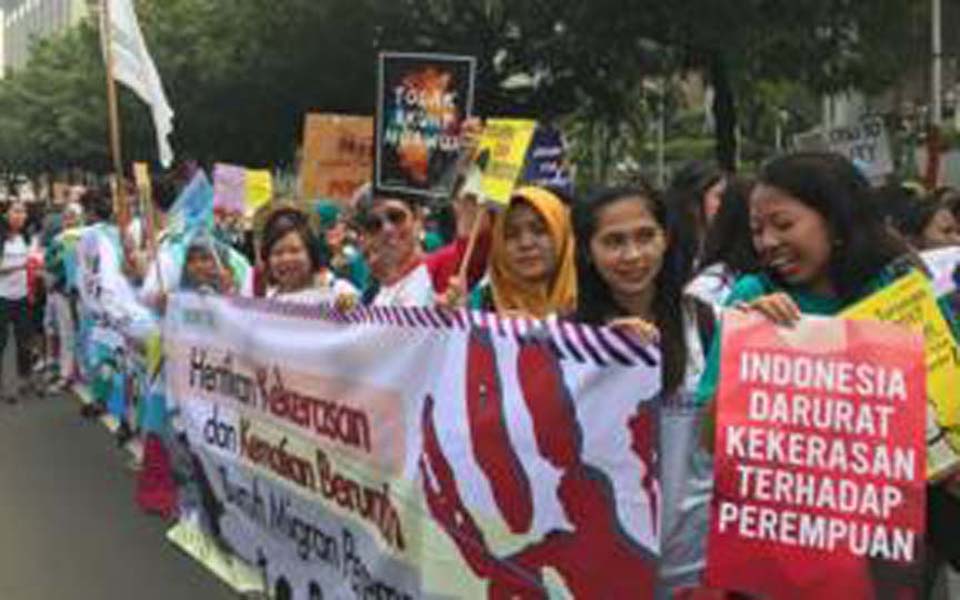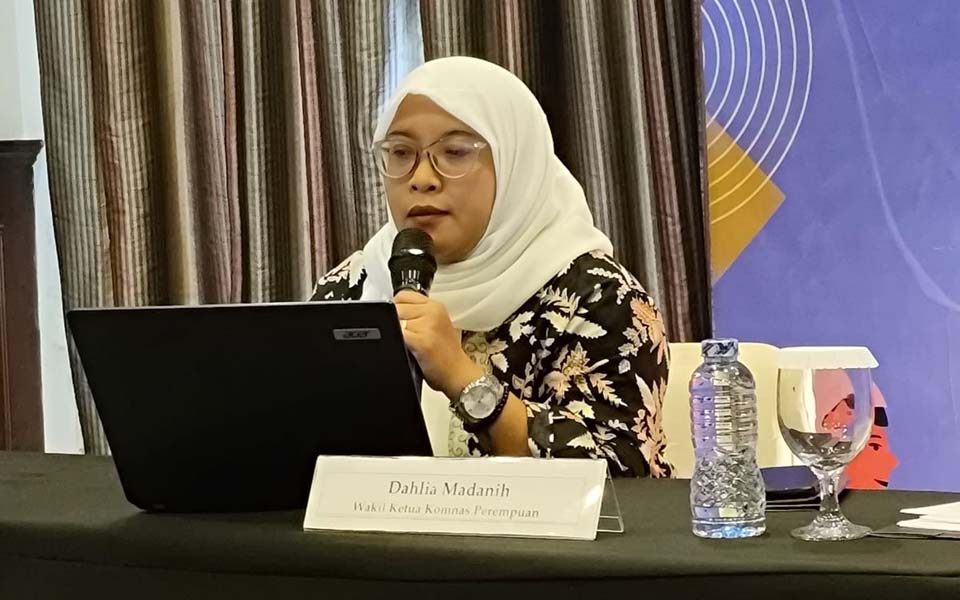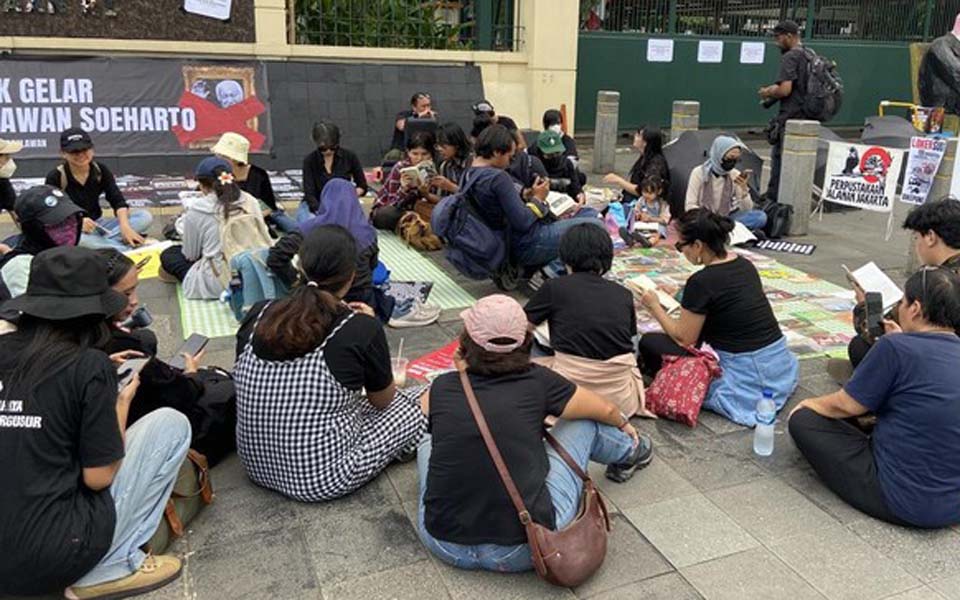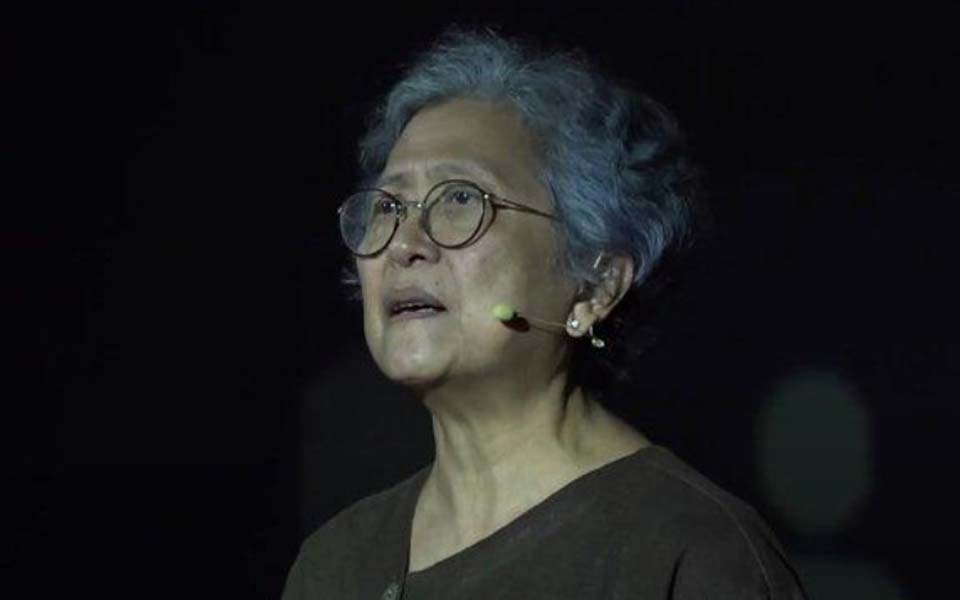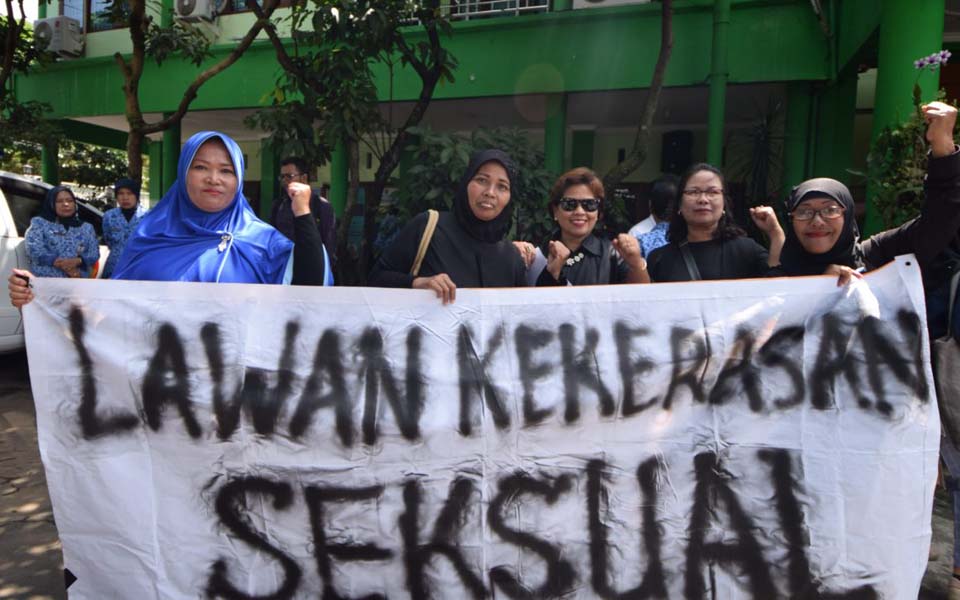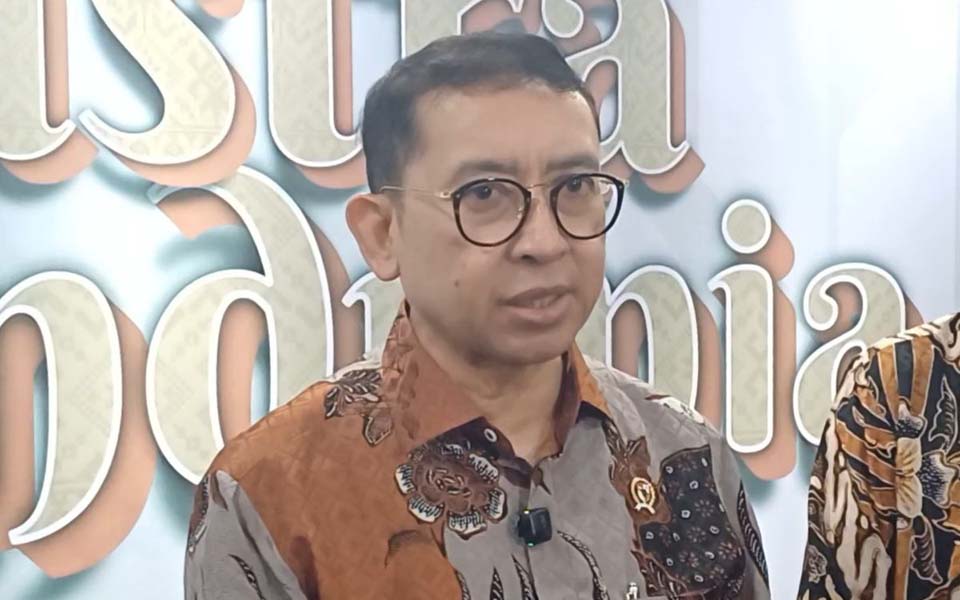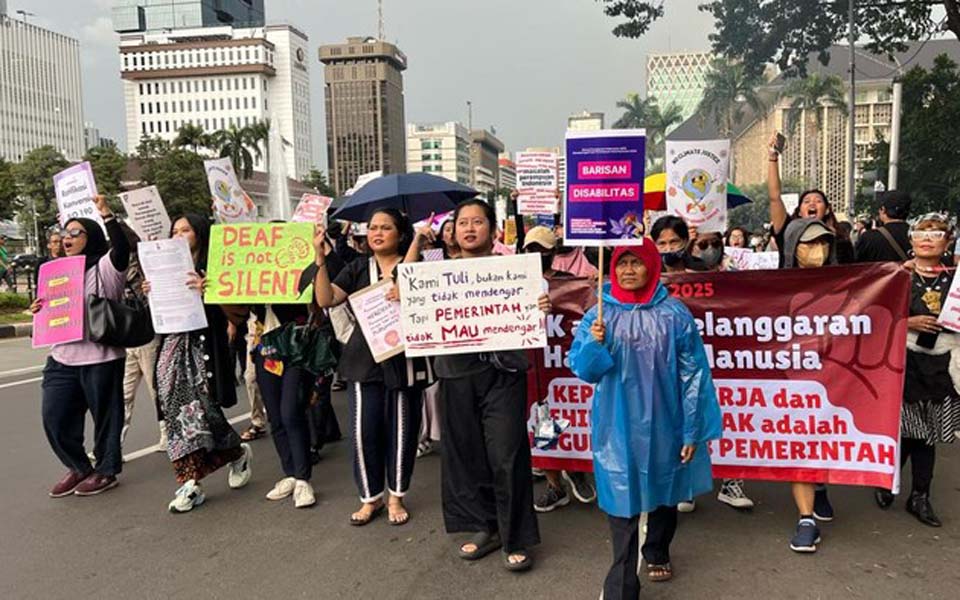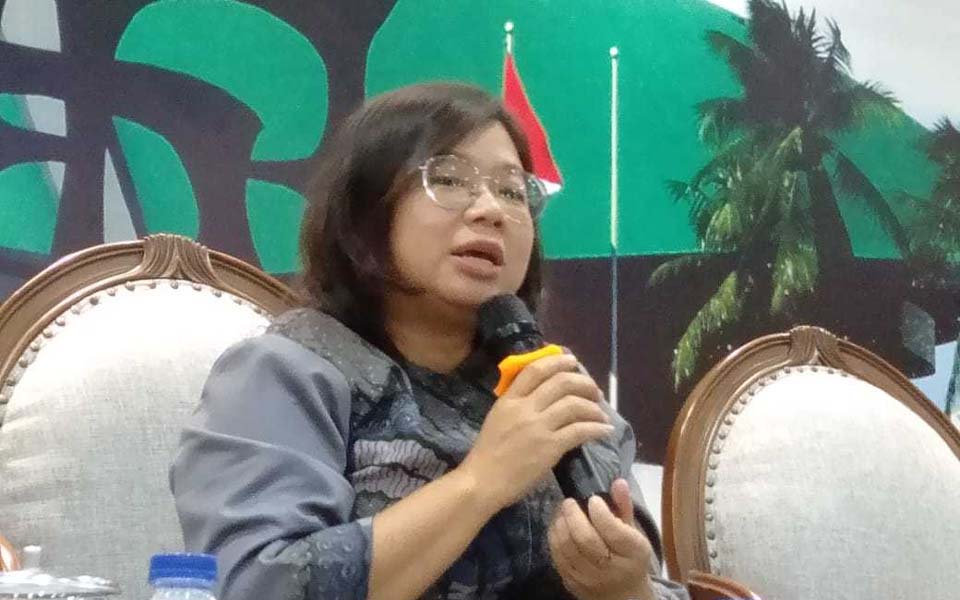The murder of women or ‘femicide’ was one of the issues taken up by the 2018 Women’s March in Jakarta on Saturday March 3.
The rally in the MH Thamrin commercial district in Central Jakarta, which was joined by around 500 or so people, also took up violence against lesbian, gay, bisexual and transgender (LGBT) people, protection for domestic and migrant workers, under-age marriage, date rape and protection for sex workers.
At the policy level, the action called for the enactment of the Draft Law (RUU) on Sexual Violence, the RUU on Domestic Workers and criticised the planed revisions to the Criminal Code (KUHP) which they said was problematic because of the broadening of the articles on adultery (zina) and prohibitions on the distribution of contraceptives and reproductive education.
As reported by BBC Indonesia journalists Isyana Artharini, the protesters began gathering at around 7am then marched to the State Palace in Central Jakarta.
National Commission on Violence Against Women (Komnas Perempuan) commissioner Mariana Amiruddin said that in 2017 at least 173 women died as a result of sexual violence and murder by their husbands, partners, uncles and even their own fathers.
“And these deaths are quite gruesome, many experienced abuse, torture, mutilation, and usually the bodies are found in other locations. And the problem stems from just one issue, because the man loses his self-respect. Just because a wife asks to be bought a car, they have to be killed, cut into pieces, and [their bodies] discarded”, said Mariana during a press conference in Jakarta on Thursday March 1.
Komnas Perempuan believes that the murder of women cannot be seen as a simple criminal act but as a form of gender based violence.
Meanwhile Yuli Rustinawati from the LGBT advocacy group Arus Pelangi (Rainbow Current) sees this year’s Women’s March as a medium to articulate the concerns of “those who cannot speak out anywhere”, including LGBT groups or people expressing their gender, sexual identity and diverse sexual orientation, who are “currently experiencing systematic persecution”.
For Siswati from the National Network for Domestic Workers Advocacy (Jala PRT), the Women’s March should be used to highlight the fact that there is still no law to protect the 4 million or more domestic workers in Indonesia who she said are venerable to physical violence, exploitation, long hours, low wages and a lack of health security.
The recent death of Adelina, a migrant worker in Malaysia, is an example of another problem – the lack of protection for women or migrant workers overseas – which was also highlighted at this year’s action.
Other issues such as underage marriage and date rape, including the use of social media as a means to disseminate videos of intimate relationships without prior consent, were also taken up by the 2nd Women’s March.
Meanwhile according to Ira Askarina from the Indonesian Association for Women with Disabilities (HWDI), “Women with disabilities face a great deal of stigma, violence and problems such as difficulties obtaining an education, sexual harassment and other serious issues such as forced contraception. This very much violates a woman’s rights over her own body”.
Indonesian President Joko “Jokowi” Widodo also responded to the Women’s March through his social media account:
“To develop Indonesia, we need women who are strong. A strong women in my life has been [First Lady] Ibu Iriana. Best wishes for those taking part in the Women’s March, in the context of International Women’s Day on March 8” – Joko Widodo (@jokowi) March 3, 2018
“The Women’s March takes up problems collectively, not just celebrating women as individuals. Supporting this movement also means having a commitment to protecting citizens from discrimination & criminalisation based on gender & sexual orientation. cc: @jokowi #WomensmarchJKT https://t.co/0pvp3fkRql – Intan Paramaditha (@sihirperempuan) March 3, 2018
Gina Rahmafalah, a student from the Padjadjaran University in Bandung, West Java, said that the action was triggered by “concerns for and the issue of gender equality”. “So if there is an arena to express it, why not”, she said.
Meanwhile 16-year-old student Basma Alisha said that her involvement in the action was because of a desire to demand a sense of security for women in the public sphere.
“If for example we are walking, and there are men who call out and shout, I really don’t like that kind of thing”, she said.
The 1st Women’s March, which was held in 2017, was joined by millions of women across the world.
The action began in the in Washington DC as a response by women who were angered at statements by US President Donald Trump which they felt were sexist and discriminated against women and other minority groups. But the demands of the action soon developed beyond just criticism of President Trump.
In Indonesia, these actions have also called on the government to produce public policies that are pro-women and pro-other marginal groups. In addition to Jakarta, the Women’s March was held in 12 other cities across Indonesia on Saturday March 3.
[Translated by James Balowski. The original title of the article was Aksi Women’s March 2018 Indonesia: soroti pembunuhan perempuan, kekerasan pada pekerja, pernikahan anak.]





